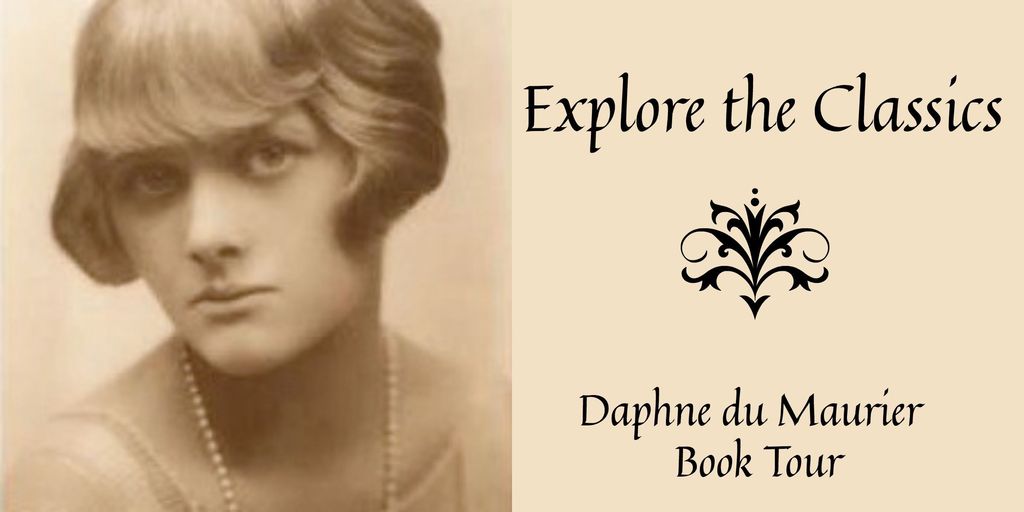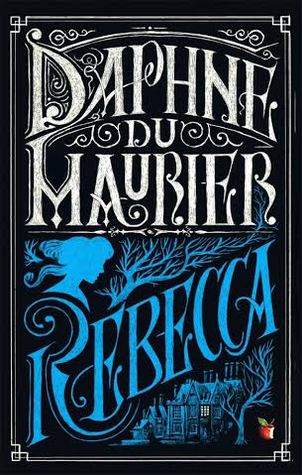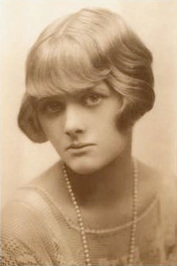Rebecca by Daphne du Maurier"Rebecca is a work of immense intelligence and wit, elegantly written, thematically solid, suspenseful.." —Washington Post "Last night I dreamt I went to Manderley again . . ." The novel begins in Monte Carlo, where our heroine is swept off her feet by the dashing widower Maxim de Winter and his sudden proposal of marriage. Orphaned and working as a lady's maid, she can barely believe her luck. It is only when they arrive at his massive country estate that she realizes how large a shadow his late wife will cast over their lives--presenting her with a lingering evil that threatens to destroy their marriage from beyond the grave. First published in 1938, this classic gothic novel is such a compelling read that it won the Anthony Award for Best Novel of the Century. |
Daphne du Maurier | If Daphne du Maurier had written only Rebecca, she would still be one of the great shapers of popular culture and the modern imagination. Few writers have created more magical and mysterious places than Jamaica Inn and Manderley, buildings invested with a rich character that gives them a memorable life of their own. In many ways the life of Daphne du Maurier resembles that of a fairy tale. Born into a family with a rich artistic and historical background, the daughter of a famous actor-manager, she was indulged as a child and grew up enjoying enormous freedom from financial and parental restraint. She spent her youth sailing boats, travelling on the Continent with friends, and writing stories. A prestigious publishing house accepted her first novel when she was in her early twenties, and its publication brought her not only fame but the attentions of a handsome soldier, Major (later Lieutenant-General Sir) Frederick Browning, who married her. Her subsequent novels became bestsellers, earning her enormous wealth and fame. While Alfred Hitchcock's film based upon her novel proceeded to make her one of the best-known authors in the world, she enjoyed the life of a fairy princess in a mansion in Cornwall called Menabilly, which served as the model for Manderley in Rebecca. Daphne du Maurier was obsessed with the past. She intensively researched the lives of Francis and Anthony Bacon, the history of Cornwall, the Regency period, and nineteenth-century France and England, Above all, however, she was obsessed with her own family history, which she chronicled in Gerald: a Portrait, a biography of her father; The du Mauriers, a study of her family which focused on her grandfather, George du Maurier, the novelist and illustrator for Punch; The Glassblowers, a novel based upon the lives of her du Maurier ancestors; and Growing Pains, an autobiography that ignores nearly 50 years of her life in favour of the joyful and more romantic period of her youth. Daphne du Maurier can best be understood in terms of her remarkable and paradoxical family, the ghosts which haunted her life and fiction. While contemporary writers were dealing critically with such subjects as the war, alienation, religion, poverty, Marxism, psychology and art, and experimenting with new techniques such as the stream of consciousness, du Maurier produced 'old-fashioned' novels with straightforward narratives that appealed to a popular audience's love or fantasy, adventure, sexuality and mystery. At an early age, she recognised that her readership was comprised principally of women, and she cultivated their loyal following through several decades by embodying their desires and dreams in her novels and short stories. In some of her novels, however, she went beyond the technique of the formulaic romance to achieve a powerful psychological realism reflecting her intense feelings about her father, and to a lesser degree, her mother. This vision, which underlies Julius, Rebecca and The Parasites, is that of an author overwhelmed by the memory of her father's commanding presence. In Julius and The Parasites, for example, she introduces the image or a domineering but deadly father and the daring subject of incest. In Rebecca, on the other hand, du Maurier fuses psychological realism with a sophisticated version of the Cinderella story. The nameless heroine has been saved from a life of drudgery by marrying a handsome, wealthy aristocrat, but unlike the Prince in Cinderella, Maxim de Winter is old enough to be the narrator's father. The narrator thus must do battle with The Other Woman - the dead Rebecca and her witch-like surrogate, Mrs Danvers - to win the love of her husband and father-figure. (Bio from goodreads.com) |
My Thoughts
Last night I dreamt I went to Manderley again. - First line of Rebecca
This first line really set the gothic scene for the whole book. I must admit that i have been reading slowly and haven't completed it fully, but i have read enough the understand its direction and i have certainly read enough to know i like the story. In a nutshell, the story goes like this. The protag (a young lady who never really identifies herself) meets, falls in love with and marries Maxim while on vacation. The problem with this is that his previous wife, Rebecca, has died some time before. As soon as our protag enters the residence (called Manderley) she feels as if she's being haunted by ghost of the first wife. Maybe not physically haunted...but she feels her presence and feels unwelcome. To make things worse, the head server person Mrs. Danvers is still "loyal" to the first wife and pretty much despises the new wife. On top of all that, the husband is all distant and odd acting! We find out later that he has a big secret. After the secret is revealed, things between the wife and husband seem to calm and smooth over...but this only enflares good ole Mrs. Danvers. And this brings us back to the first line, what Mrs. Danvers does next is something nightmares or made of!
As far as content, character development and writing style, i loved it all. I can see how some people may say it moves slightly slow, but i was honestly so enthralled with the story, i didn't even notice. I think my favorite part was reading all the info on the setting and environment. I like picturing myself in the manor. My inner princess was really into that, though it wasn't the Buckingham Palace. It was still a good sounding place to want to explore! Well i wouldn't explore with Mrs Danvers around. That woman was dreadful....don't want to see her in a dark corridor in the middle of the night. Karmic Retribution <--- two words, that all i have to say about that!
This first line really set the gothic scene for the whole book. I must admit that i have been reading slowly and haven't completed it fully, but i have read enough the understand its direction and i have certainly read enough to know i like the story. In a nutshell, the story goes like this. The protag (a young lady who never really identifies herself) meets, falls in love with and marries Maxim while on vacation. The problem with this is that his previous wife, Rebecca, has died some time before. As soon as our protag enters the residence (called Manderley) she feels as if she's being haunted by ghost of the first wife. Maybe not physically haunted...but she feels her presence and feels unwelcome. To make things worse, the head server person Mrs. Danvers is still "loyal" to the first wife and pretty much despises the new wife. On top of all that, the husband is all distant and odd acting! We find out later that he has a big secret. After the secret is revealed, things between the wife and husband seem to calm and smooth over...but this only enflares good ole Mrs. Danvers. And this brings us back to the first line, what Mrs. Danvers does next is something nightmares or made of!
As far as content, character development and writing style, i loved it all. I can see how some people may say it moves slightly slow, but i was honestly so enthralled with the story, i didn't even notice. I think my favorite part was reading all the info on the setting and environment. I like picturing myself in the manor. My inner princess was really into that, though it wasn't the Buckingham Palace. It was still a good sounding place to want to explore! Well i wouldn't explore with Mrs Danvers around. That woman was dreadful....don't want to see her in a dark corridor in the middle of the night. Karmic Retribution <--- two words, that all i have to say about that!
Discussion Questions
1. What do you think the significance is of leaving the female protag unnamed? (First Name)
2. Compare and contrast this story with Jane Eyre.
3. Would you consider this a true ghost story? What causes this story to be considered Gothic?
4. Was Mrs. Danvers a good villian?
5. Is justice served at the end of the novel? Why or Why not?
2. Compare and contrast this story with Jane Eyre.
3. Would you consider this a true ghost story? What causes this story to be considered Gothic?
4. Was Mrs. Danvers a good villian?
5. Is justice served at the end of the novel? Why or Why not?




